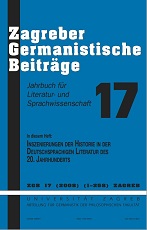
Im Aufsatz wird den (Selbst-)Inszenierungsarten von Figuren der Alt-68er in Uwe Timms Roman Rot (2001) nachgegangen, wobei das Interesse v. a. den beiden entgegengesetzten Positionen von »Lebensarten der Melancholie« und »verzweifeltem Aktivismus« gilt. Vor dem Hintergrund historischer Erinnerungen an die für die 68er-Generation formativen Ereignisse wird das Augenmerk auch auf die Strategien gelegt, die Timms Akteure zur Bewahrung ihrer sich auflösenden Identität verwenden. Die Rekonstruktion dieser sinnstiftenden Bemühungen soll schließlich auch den Blick auf das in Rot entworfene Geschichtsbild freilegen.
More...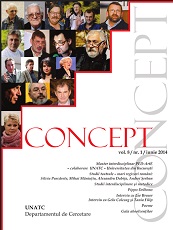
Keywords: Silviu Purcarete; Romanian theatre; Greek tragedy; chorus; Danaidele; Phaedra
This article discusses the creative strategies through which Silviu Purcarete, the well-reputed Romanian theatre director, articulates the universes of his performances. The use of word, image, space, light, music, the presence of the performer and the chorus are all traced back to the germ of each theatre show, in order to better understand and appreciate the qualities and aesthetic effects that turned his works into theatrical masterpieces.
More...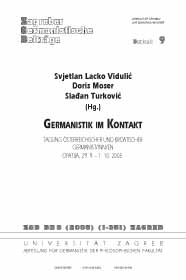
Die Autopsie der Wiener Wochenschrift Die Zeit und der Monatsschrift Österreichische Rundschau ergab eine überraschende Ignoranz gegenüber der kroatischen Moderne. Dies erstaunt umso mehr, als diese Zeitschriften sehr wohl regelmäßig über andere slawische Literaturen, namentlich die tschechische, die polnische, die ruthenische und auch die slowenische Literatur informierten und Textbeispiele dieser Modernen in Übersetzung abdruckten. Außerdem lebten zahlreiche Vertreter der kroatischen Moderne viele Jahre in der Reichs- und Residenzstadt der Monarchie, und deren maßgebliches Organ Mladost entstand dort. Selbst der Herausgeber der Zeit und wichtige Vertreter der Wiener Moderne, Hermann Bahr, der sich nicht zuletzt im Bericht über seine Dalmatinische Reise zum Fürsprecher der Kroaten stilisierte, nahm nur Notiz von Ivo Vojnović und Milan Begović.
More...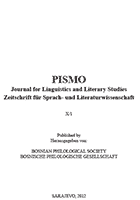
Keywords: Geschichte und Verarbeitung von Geschichte; Günter Grass; Zweiter Weltkrieg; Schuldthematik; Vergangeheitsbewältigung
Der Roman Die Blechtrommel (1959.) von Günter Grass behandelt die ereignisreiche Zeit der ersten Hälfte und Mitte des 20. Jahrhunderts in Deutschland, die jedoch nicht einfach faktisch wiedergegeben ist, sondern etwas verfremdet; es wird auch die Darstellung dominanter gesellschaftlicher Aspekte, etwa des Kleinbürgertums, der Geschichtsbewältigung und der Schuldfrage behandelt.
More...
Keywords: rage; revolt; routine; childhood; heritage; belgitude; frontier; autofiction.
Jean Muno, Rages et Ratures or the Diary of a Detested Filiation. Starting from Jean Muno’s (pen name of Robert Burniaux) posthumous diary, Rages et ratures [Rages and Erasures], the author of this article sets out to examine the conflicting relations between the Belgian writer and his father, the novelist Constant Burniaux. This devastating and ferocious book published in 1998 by Jean-Marc Burniaux, Muno’s son, is not incidental in the writer’s work. Before this novel, he had written two other autobiographical, diary-like novels (Ripple-Marks in 1976 and Histoire exécrable d’un héros brabançon in 1982) which both belong to “settlement” literature, for we can talk about a settlement in the writer’s relationship with his parents, a kind of “parenticide by the word”, and, through the family, about a questioning of society’s false values, a demolition of the System (be it institutional, political, or moral).
More...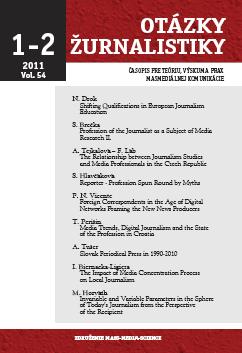
Keywords: Review
RONČÁKOVÁ, Terézia. Môže cirkev hovorit mediálnym jazykom? Prienik náboženského a publicistického štýlu III. Praha : Nakladatelství Paulínky, 2010. 479 s. ISBN 978-80-7450-011-4
More...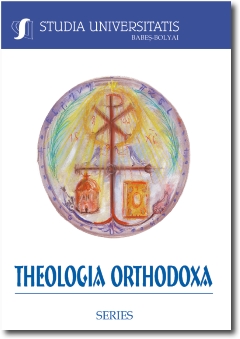
Keywords: Dispute; Movement for Spiritual Revival in Greece; 18th Century; Traditionalists; Enlightenment.
The Dispute Between Representative of the Movement for Spiritual Revival in Greece in the Eighteenth Century (Traditionalists and Enlightenment). Profound changes which Europe passed in the eighteenth century were felt in Greece and to all Orthodox peoples of South-Eastern Europe, by young people who studied at European universities. Very soon the epicenter of the dispute between Greek Enlightenment scholars and traditionalists scholars moved even in the St. Mount, once the establishment of Athonite Academy and revival movement initiated by its teachers and athonite monk. The climax of the confrontation between representatives of the spiritual revival movement was the famous dispute between Corais Adamntios and Athanasios of Paros in a polemic of echo. Church is not opposed in principle to people enlightenment and to the science, evidence the modern program of the Academy Athonite Studies in Schools and Academies in Greece, Bucharest and Iasi, but emphasizes the need for spiritual rebirth of the people, by editing the writings of the Philokalia with the anthropocentric humanism of Western Enlightenment. There was never overlooked the fact that the Orthodox Church represents the consciousness of the nation and the main cultural expression. The Orthodoxes remain anchored in the tradition offered by faith and this tradition translates in mentality and culture.
More...Keywords: development; journalist; title
In this paper, we aim at achieving an overview of the studies and theoretical directions of the concept of title, we focus on emphasising the complexity of this kind of research and the diversity of the research tracks, which are currently only partially explored in the field of study of titles. Another purpose of this paper is to point out those elements of journalistic writing that influence the journalist’s choice in relation to the design of a press title.
More...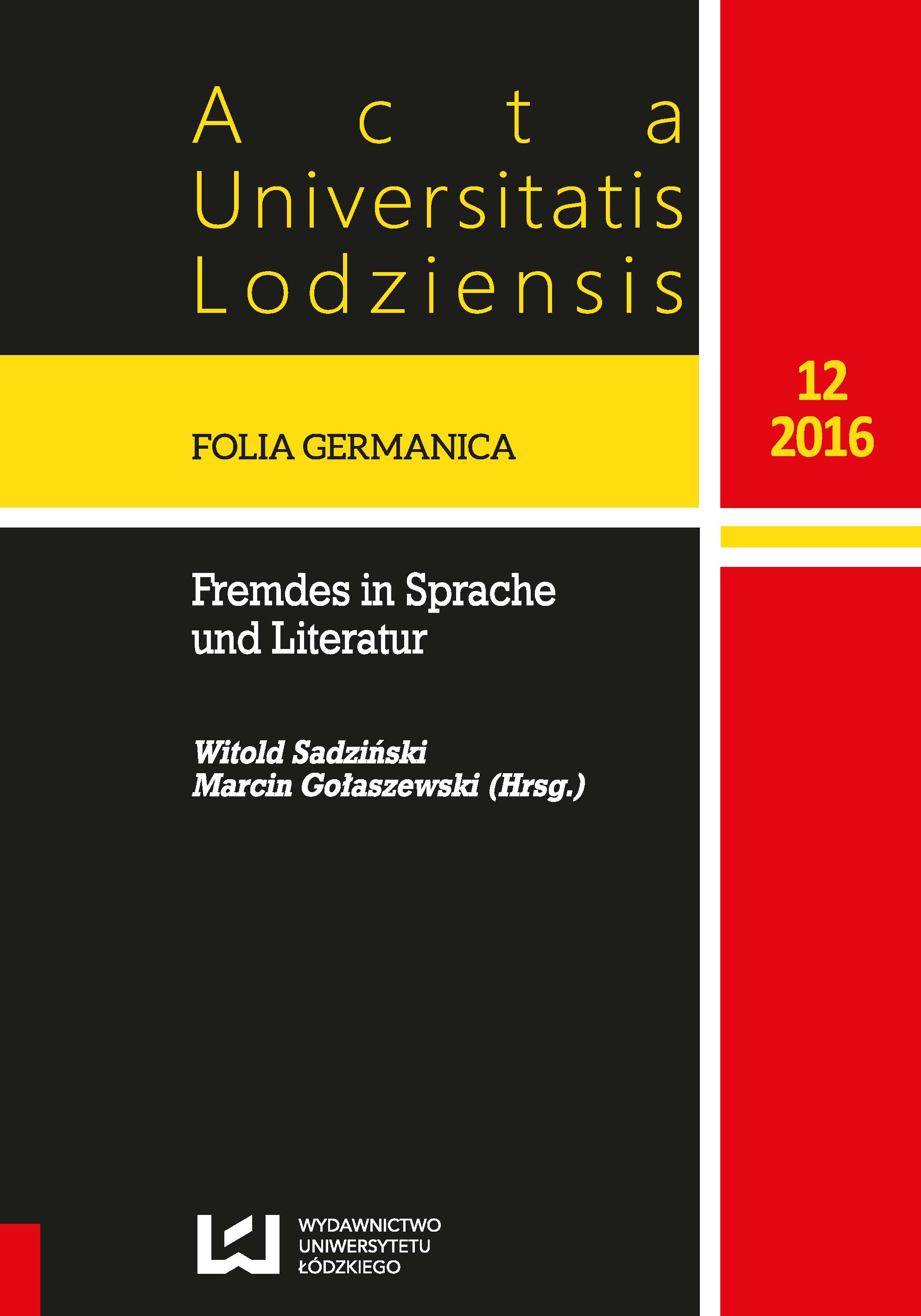
Keywords: internationalisms in German; stressed syllables in internationalisms; learning correct stress
This article deals with the problem of allocating stress correctly to international words by learners of German. International words are easily understood due to similarities of form and meaning in different languages, but paradoxically they are difficult to pronounce in terms of stressing the right syllable. Internationalisms are understandable in different languages, but changes in syllable stress are quite common, therefore learners pronounce these words incorrectly by stressing the wrong syllable. This article is an attempt to show that the acquisition of the stress in foreign words, especially in internationalisms in German can be made a little easier.
More...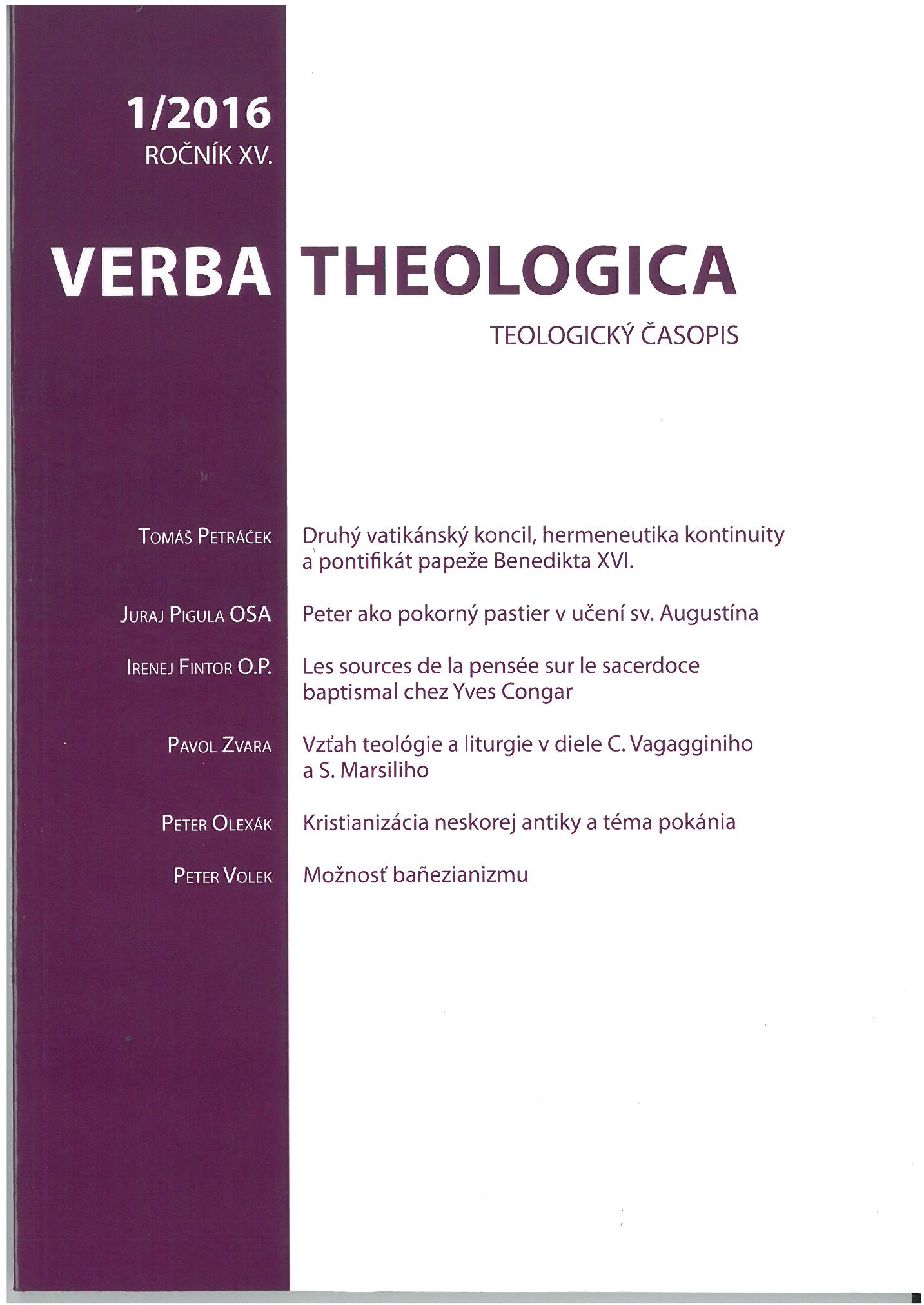
Keywords: baptismal priesthood; Augustine; Thomas Aquinas; theology of laity; sacrifice; christology; pneumatology;
The study offers Congar’s understanding of the topic of baptismal priesthood. The theologian draws much on biblical sources, touching also the era of systematization of theology in which the highest authorities are Augustine and Thomas Aquinas. These writers, as Congar argues, introduce many distinctions into theological reflection which helps them to form a coherent and balanced system in theological work. For the French Dominican the return to the sources helps him to avoid the unilateral approach of modern theology which often tries to accent that shape of reflection which is the strongest or which seems to be the most useful for solving some particular problem.
More...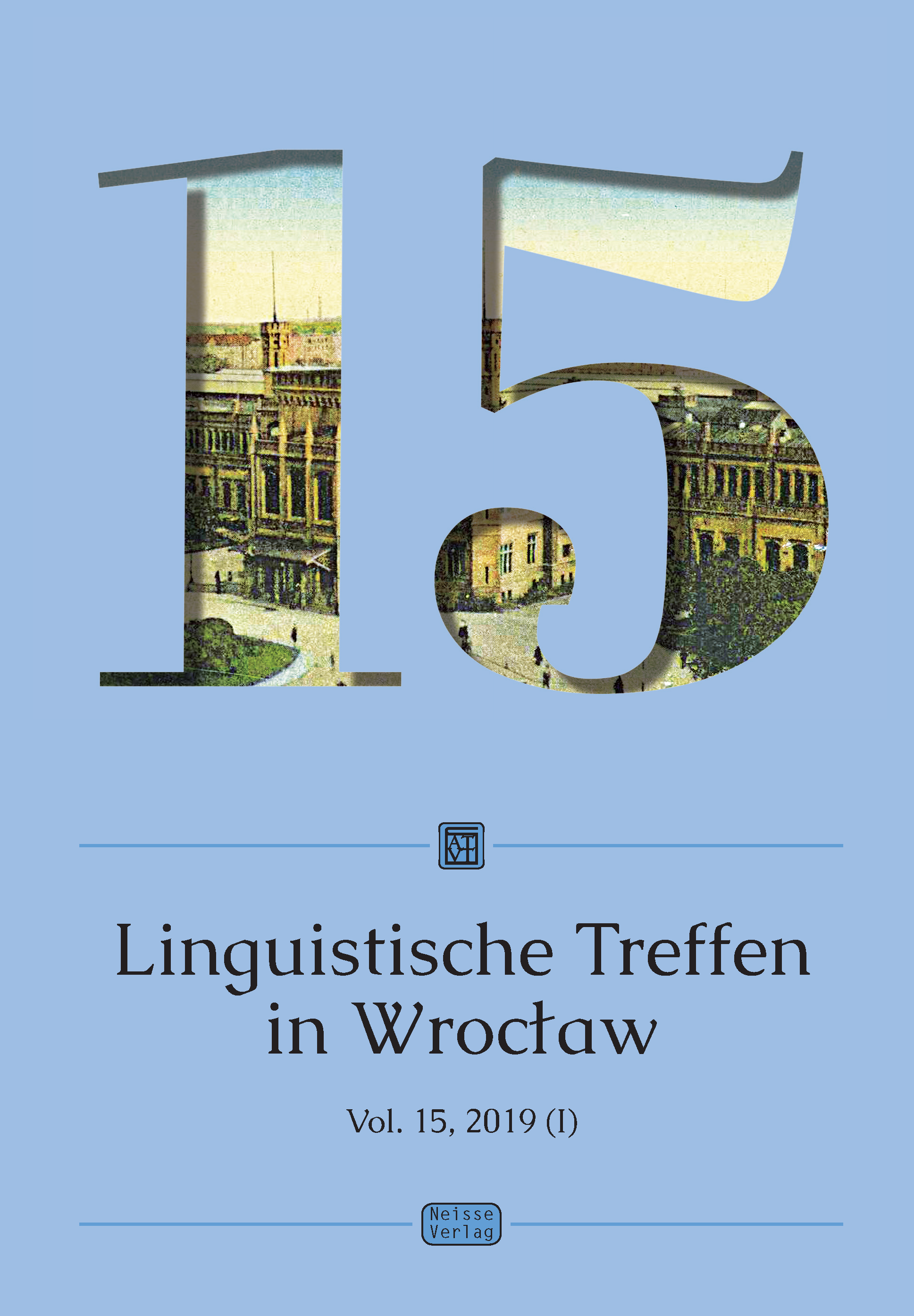
Keywords: Arno Schmidt; punctuation; translation(s); awards; Republic of Letters; Scenes from the Life of a Faun; translation quality
Our aim is to relate criteria for quality assessment in translation to micro elements. Punctuation in Arno Schmidt seems to be a good bet as, with him, this supposedly formal element is instrumental in constituting the sense of a text to a degree far beyond standard state-of-the-art routine.
More...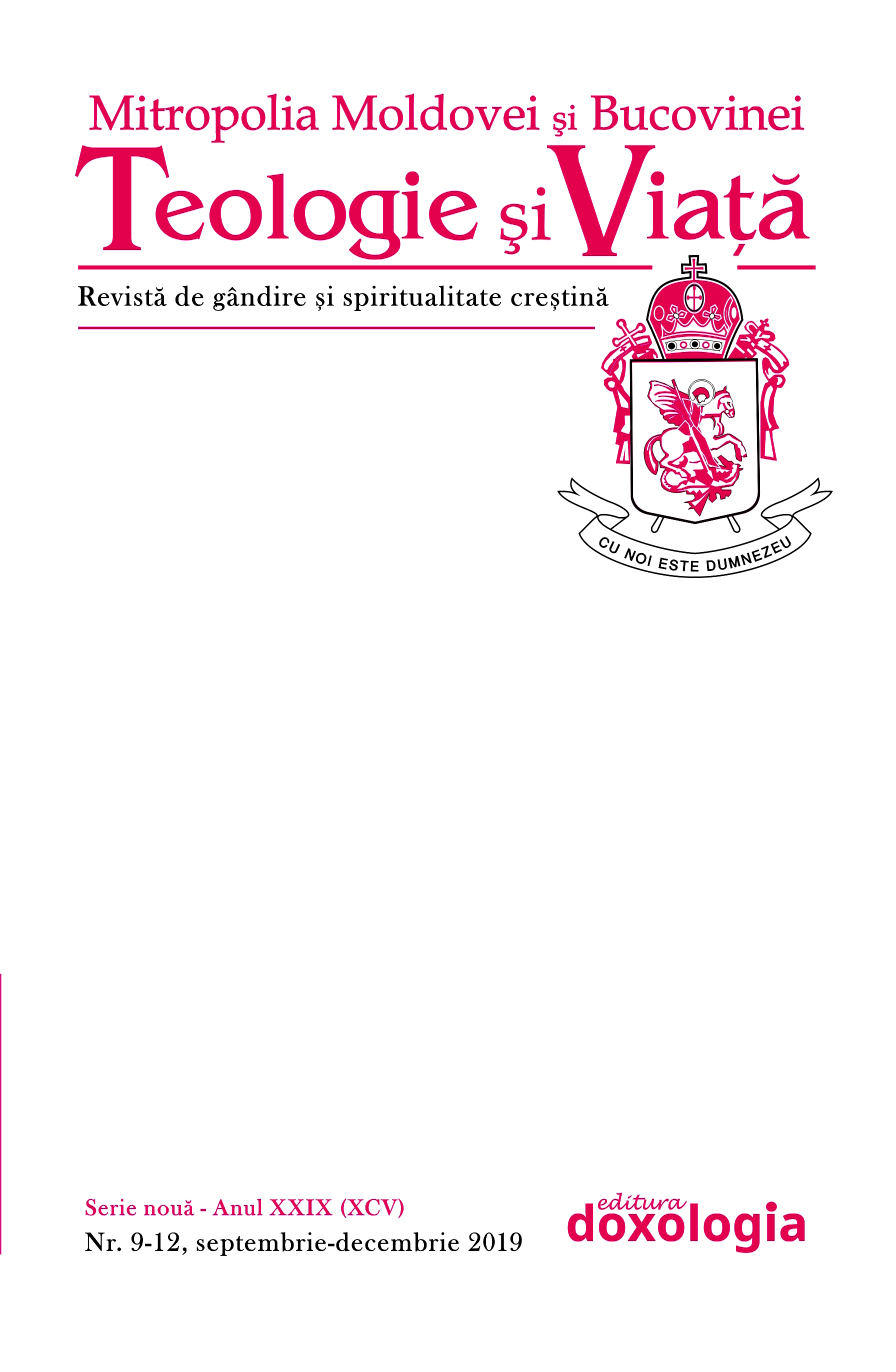

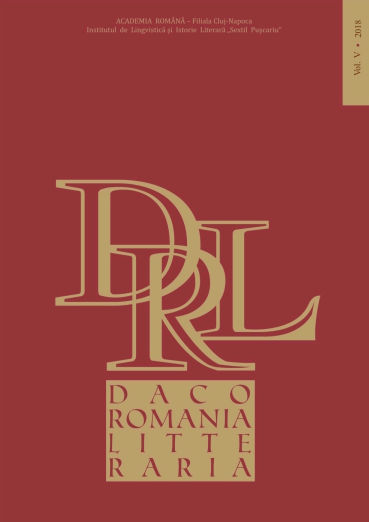
Keywords: Maurice Ciantar; Bohemian; promiscuity; squander; technique of the self;
In this paper I intend to show how affects that come to the surface in Ciantar’s writings mark the relations between the sexes and account for the characters’ controversial bent on how they spend their energy. Finally, the text reveals a clash between the urge to join the crowd and the call of the Bohemian way of life. Ciantar’s novels reveal the age gap between a man and a woman forming a couple and stress acute differences in their social status. In the Jacques Vorageolles trilogy, on two occasions, the protagonist ends up with an older female partner and earns the reputation of being a gigolo. Vorageolles’ brief experience of fatherhood is cut short due to the passing away of his prematurely born child. In order to recover, , the male protagonist in Ciantar’s texts remains a bachelor, takes part in orgies and, childless, faces courageously the onset of old age. Gambling is practiced as a profession by the author and comes to the fore in the later texts. While still an adolescent, Vorageolles joins first the SFIO, then a Trotskyite group, before heading for Barcelona at the outbreak of the civil war where, soon, reality dampens his revolutionary enthusiasm. As from now on, Ciantar turns his back to the crowd, preferring definitely to stroll endlessly along the Paris boulevards: an activity which is equivalent to Foucault’s technique of the self.
More...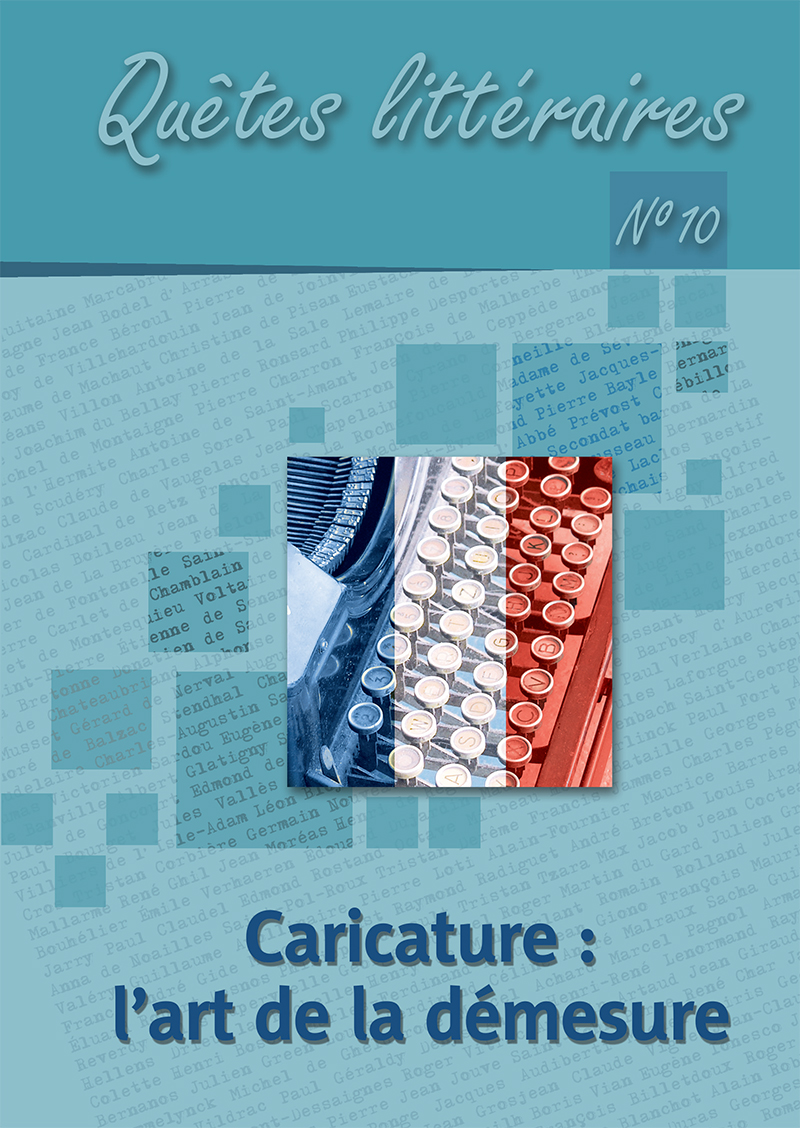
Keywords: Céline; Sigmaringen; caricature; comic; grotesque; excess
In his three novels, commonly referred to as the German trilogy, Céline evokes the story of his dangerous exodus to Germany, from 1944 to 1945, then to Denmark from 1945 to 1951. Our purpose is not to take the whole journey back, but to dwell on his stay in Sigmaringen where almost all the outstanding figures of the Collaboration are depicted and caricatured by Céline in a tone of contempt particular of him and of his exceptional singularity. We will use a few examples to show how the writer amplifies his characters’ features, to strengthen his descriptions. Céline paints their portraits, exaggerating their characteristics or, sometimes, endowing them with ridiculous attitudes. By hilarious, burlesque, comical details, Céline manages to caricature certain figures of the Vichy government in an atmosphere where absurdity, chaos and decadence mingle.
More...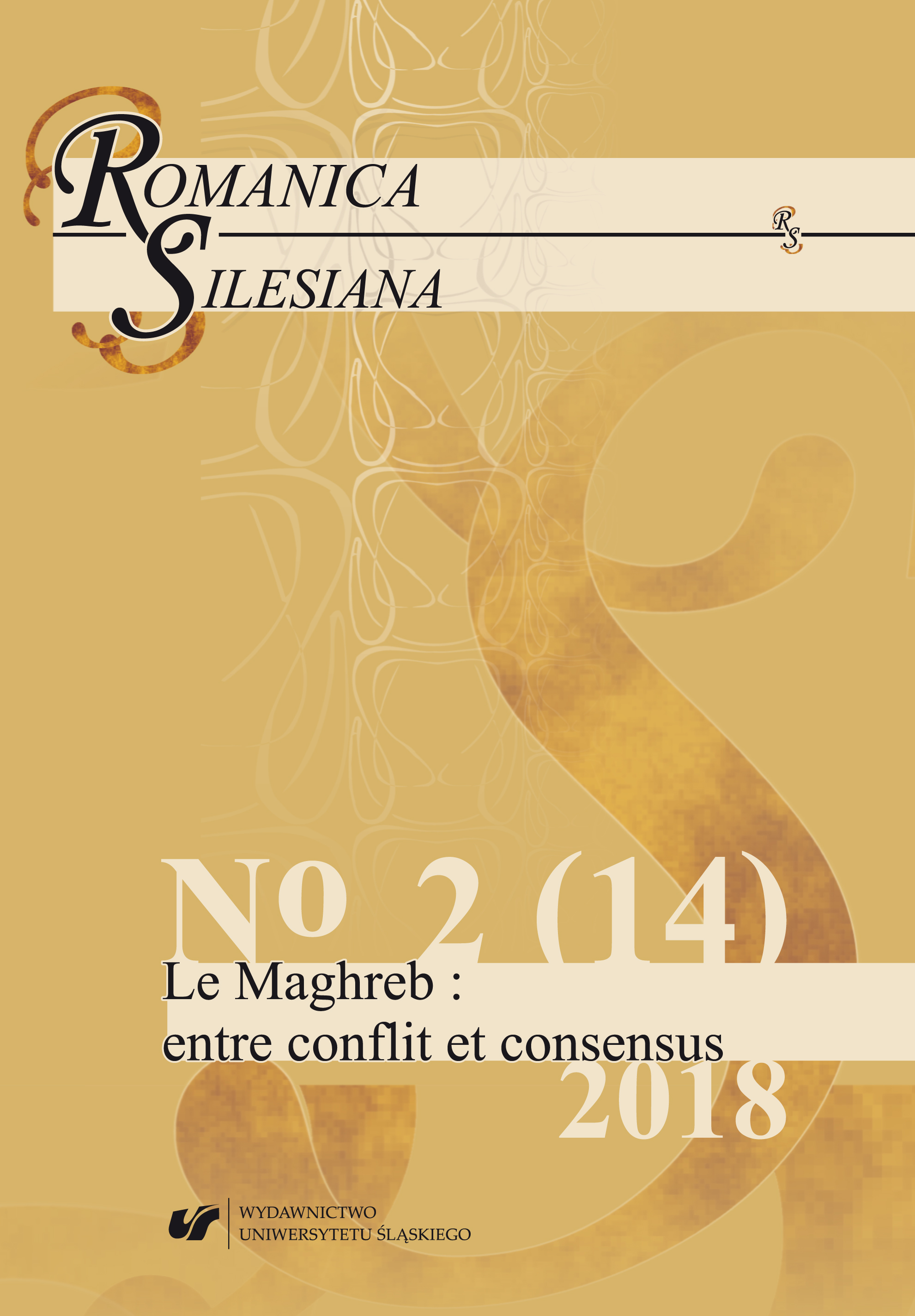
Keywords: conflict; war; identity; immigrant; Mouawad
A key figure in contemporary Quebec drama, Wajdi Mouawad, became known to the general public with the four parts of his tetralogy entitled Le sang des promesses. This Frenchspeaking author of Lebanese origin places a lot of emphasis on the themes of identity and civil war in Lebanon, addressed through the prism of the children of war immigrants who, by returning to their native country, pursue their quest for roots. This article proposes to study the successive stages of identity research of the protagonists of the two first pieces of the cycle: Wilfrid in Littoral (1999) as well as Jeanne and Simon in Incendies (2003).
More...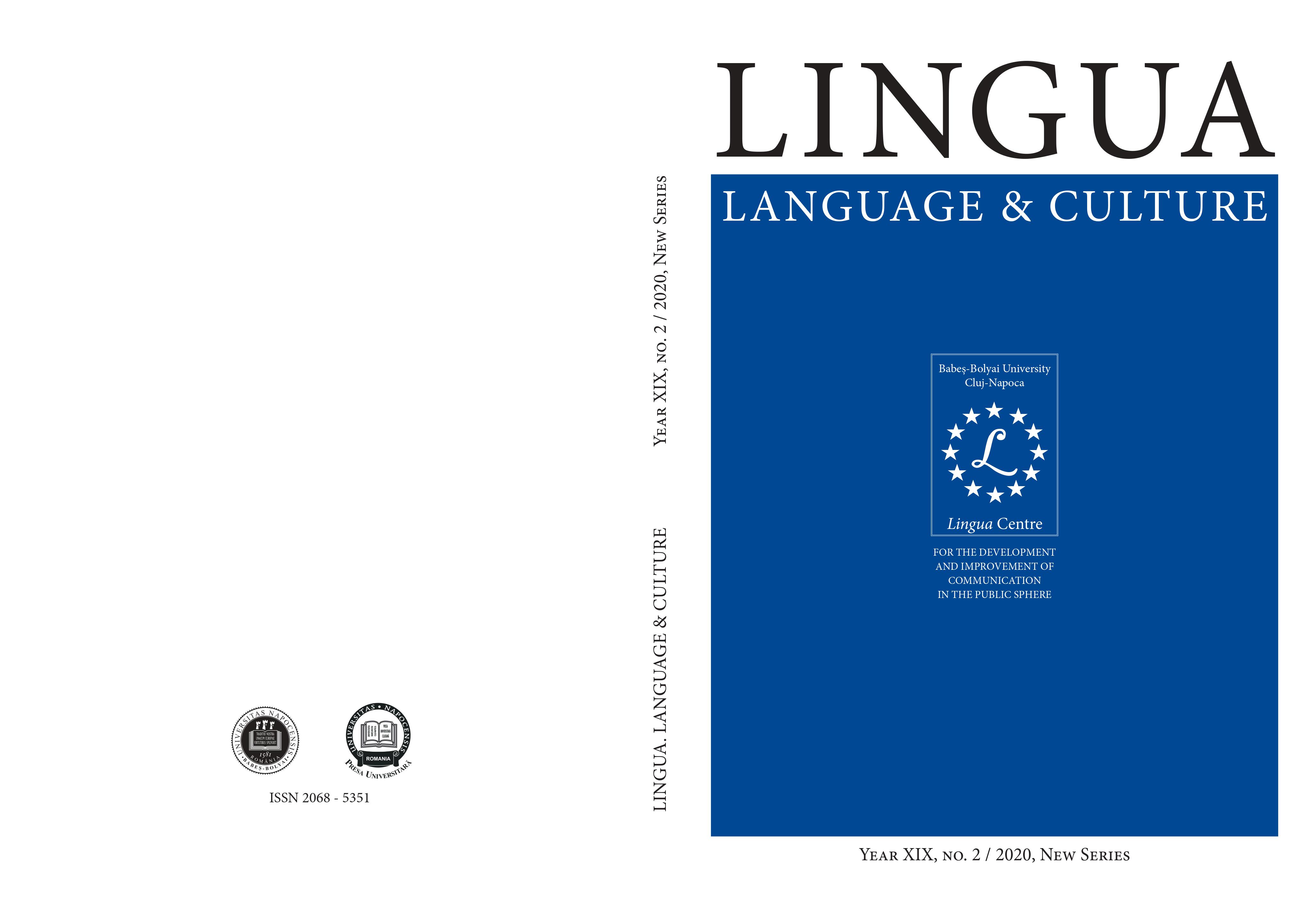
Keywords: antihero; Arsène Lupin Prize; detective novel; J.-C. Rufin; Romanian;
The paper presents Jean-Christophe Rufin and his antihero from the detective novel written in French (Le Suspendu de Conakry [The Hanging Man from Conakry]) in 2018. Aurel Timescu is born in a multiethnic family in Ceaușescu’s Romania, where he lived and was formed before he went to France. Becoming a French consul by marriage (exiled in Africa), he solves the enigma of The Hanging Man from Conakry.
More...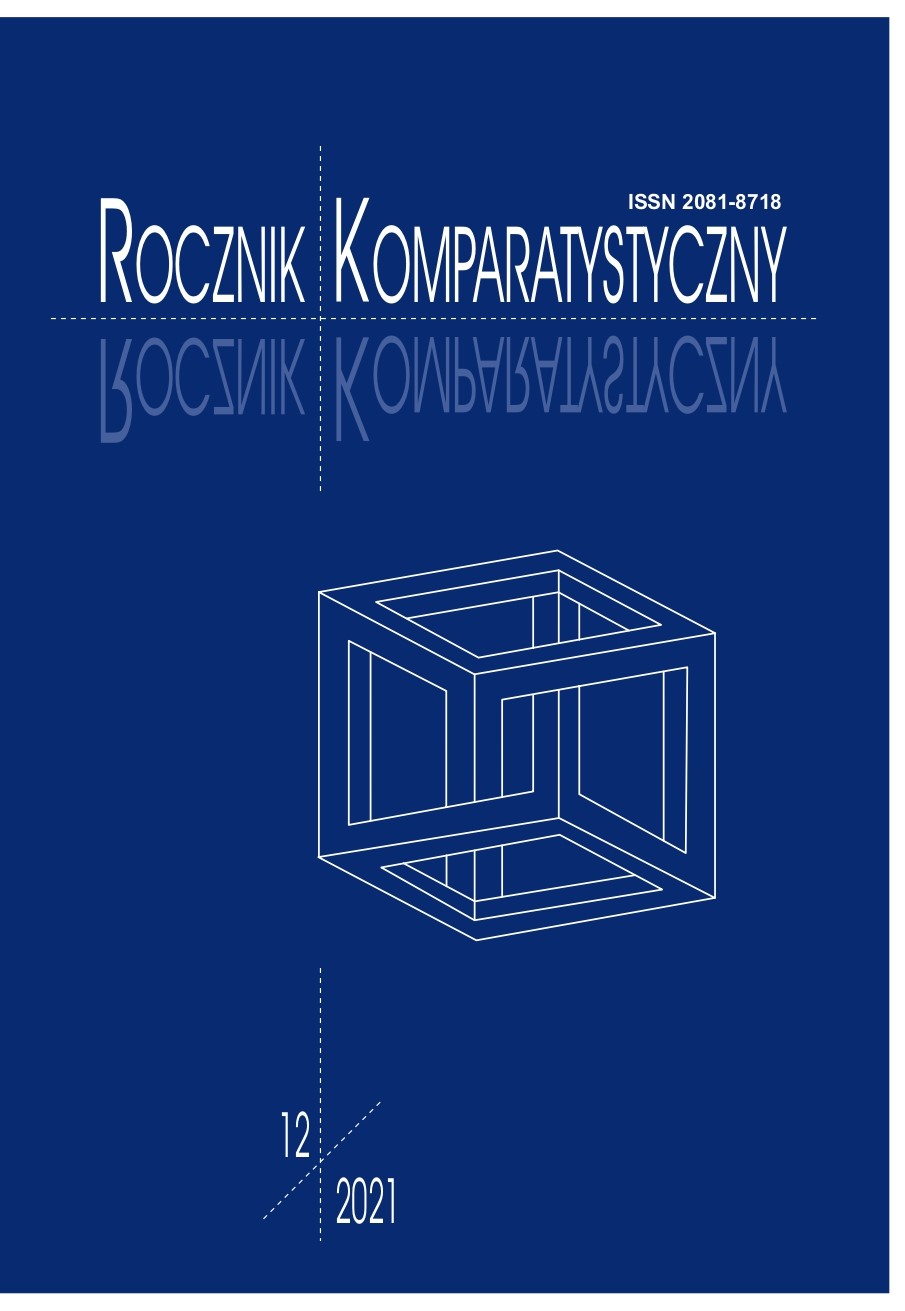
Keywords: Charles Nodier; entomology; natural history; science journalism; literary criticism
Throughout his career as a naturalist and science journalist, Charles Nodier investigated the language of natural science, which was undergoing a revolutionary transformation at the beginning of the nineteenth century. From a fervent supporter of the technical language of science – which he calls “the algebra of the naturalist method” – Nodier evolves towards a much more critical position on scientific nomenclature, accusing it of building a new Tower of Babel. From the 1820s, inspired by Charles Bonnet, Nodier begins to celebrate the picturesque harmonies of nature, abandoning the scientific style in favour of poetic description. This new poetics of the wonders of nature had a marked effect on his prose, particularly on his Scottish Trilogy.
More...